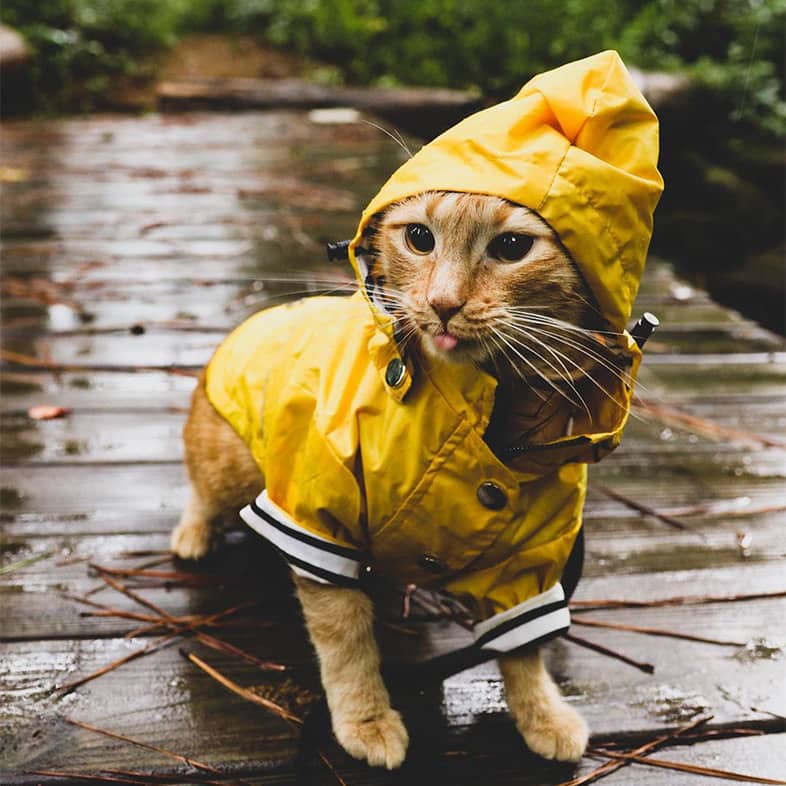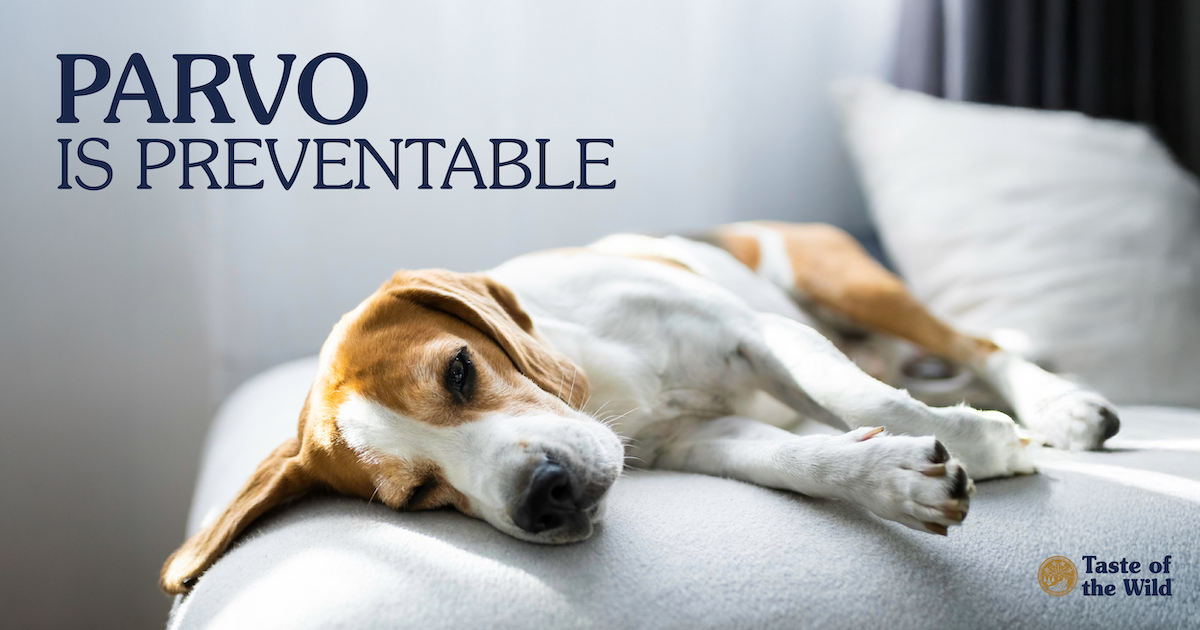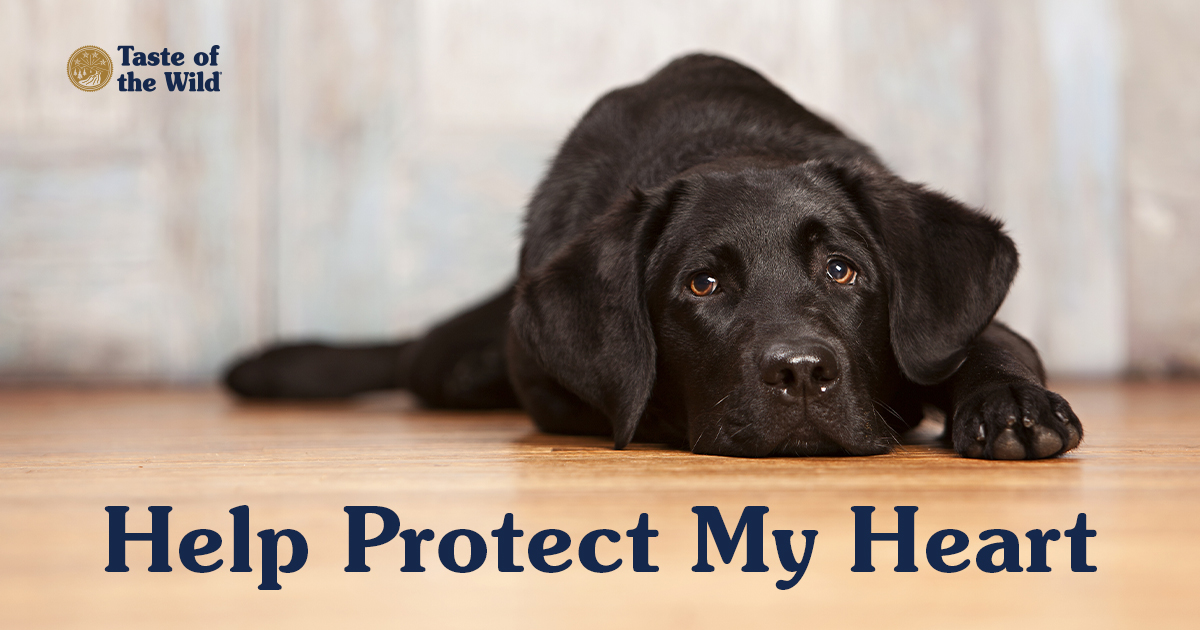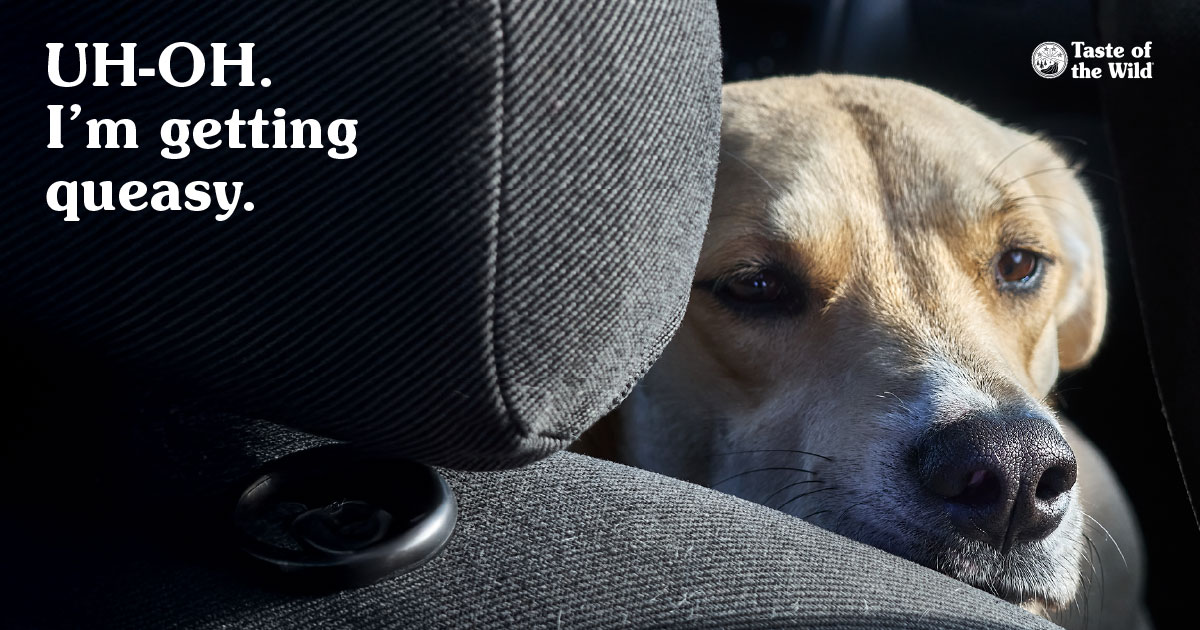Digesting the Many Possible Causes of a Pet’s Upset Stomach
Thursday, October 5, 2017 | Health

For many pets, trouble at one end of the digestive tract or the other is fairly common. In fact, upset stomachs and diarrhea are two of the top 10 reasons dogs and cats are taken to the veterinarian, according to Nationwide pet policyholders in 2016.
Sometimes, the cause is relatively innocent. Maybe you ran out of your dog’s normal diet and had to abruptly change food rather than making a gradual transition. Or your kids fed your pet too many table scraps. Perhaps your cat spent the morning chewing on grass. Or one of your pets (no one will say who) surfed the kitchen counter and polished off the plate of leftovers, not to mention the tin foil.
Whatever the cause, you shouldn’t always assume it’s a minor issue that will pass on its own. In some cases, vomiting and/or diarrhea can be signs of serious or even life-threatening conditions, such as bloat, gastrointestinal obstruction or toxin ingestion, that require immediate medical attention. When in doubt, call your veterinarian for advice.
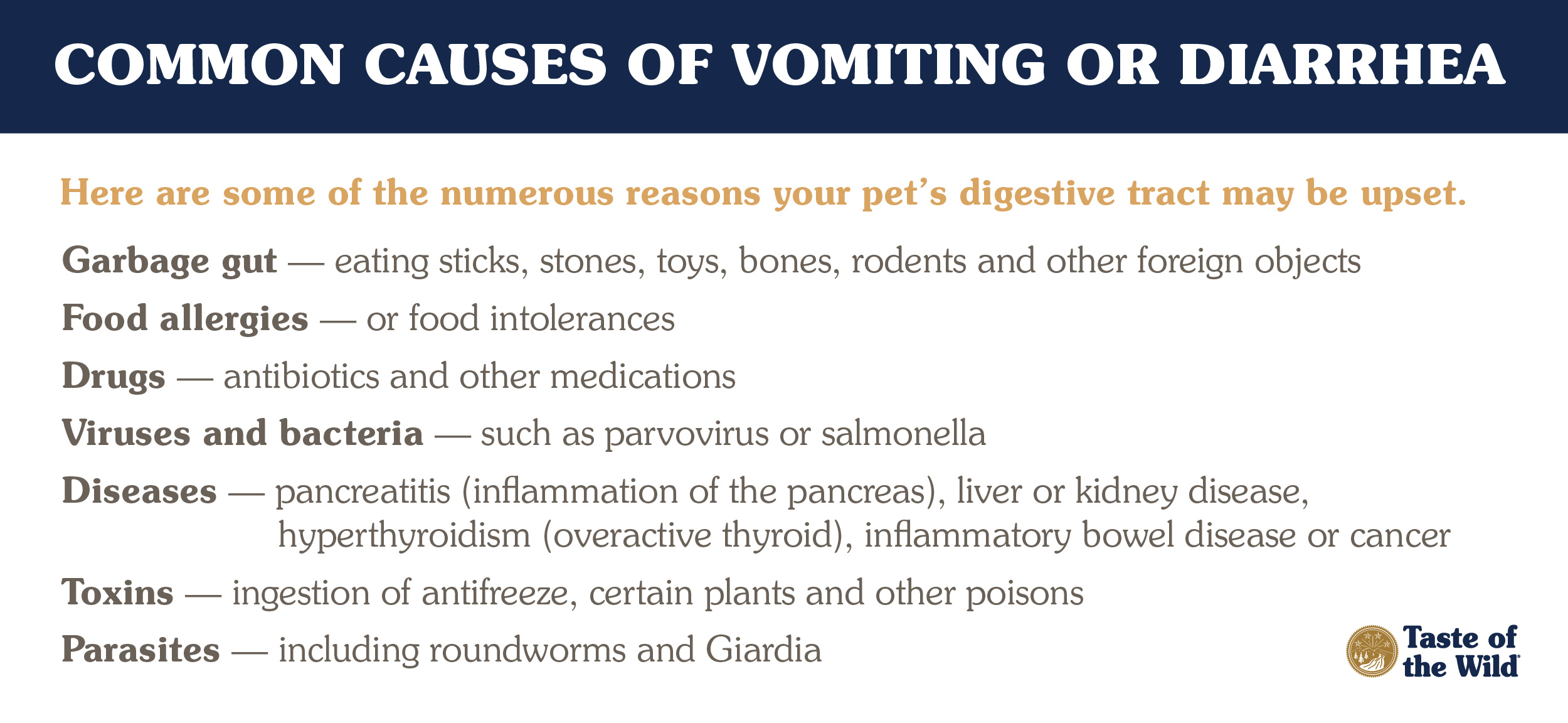
Better Safe Than Sorry
While it’s never a bad idea to seek veterinary help when your pet is under the weather, these signs may indicate that it’s time to start the car because there may be something more serious going on:
- Vomiting or diarrhea several times an hour or many times a day
- Severe lethargy
- Abdominal pain
- Abdominal swelling (in dogs)
- Blood in vomit or feces
- Loss of appetite for more than one day
While it may be tempting to give your pet over-the-counter vomiting or diarrhea medications, don’t do it unless instructed to do so by your veterinarian. Many products that are relatively safe for human use contain ingredients that can be toxic for pets.
Diagnosis and Treatment
Your veterinarian will start by giving your pet a thorough exam. He or she may also recommend blood work, X-rays or other diagnostic tests. For serious conditions, your veterinarian may recommend hospitalization, intravenous fluids, medications and in some cases, such as digestive tract obstructions, surgery.
If your pet’s condition is less serious, the doctor may recommend conservative treatment, which may involve withholding food for 12 to 24 hours to give the digestive tract a chance to rest (cats should never have food withheld for more than 24 hours). Then your pet may be started on a bland diet, such as boiled hamburger or chicken and rice or therapeutic diets that are available at your clinic. Your veterinarian may also recommend anti-nausea medications or probiotics to help restore the normal balance of healthy bacteria in the digestive tract.
Vomiting and diarrhea can lead to dehydration, so your veterinarian may recommend subcutaneous fluids. It’s also a good idea to replace the water in your pet’s dish with ice cubes. This will help prevent your pet from drinking too much water at once, which may upset the digestive system.
As the vomiting and diarrhea subside, you can gradually transition your dog or cat back to his or her regular diet. And that will help you both feel better.
The information in this blog has been developed with our veterinarian and is designed to help educate pet parents. If you have questions or concerns about your pet’s health or nutrition, please talk with your veterinarian.

